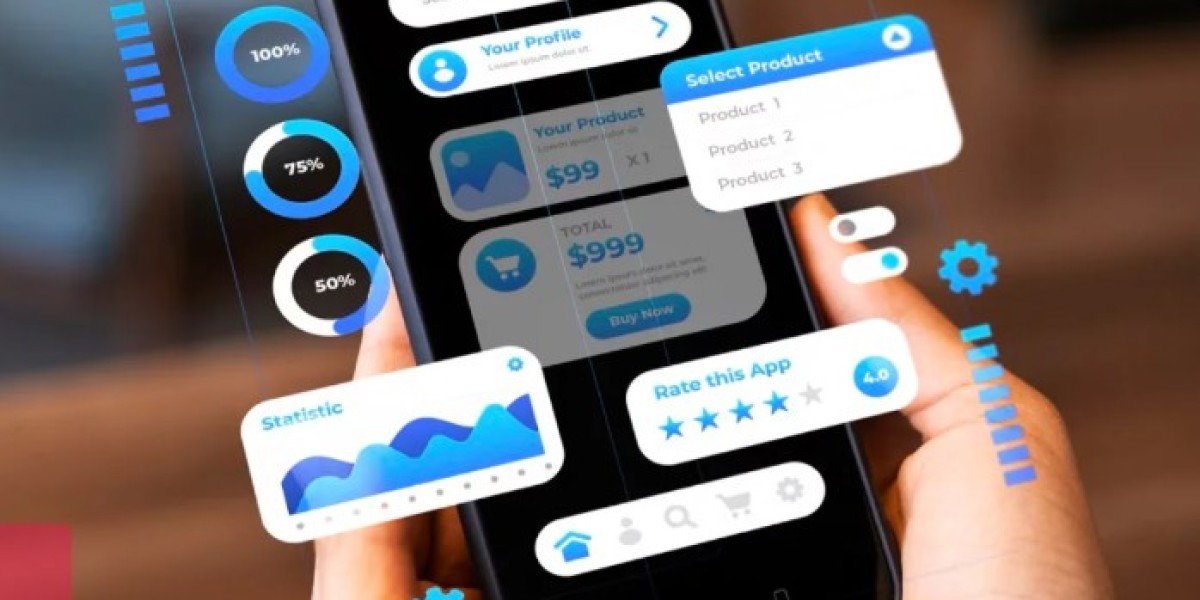Your phone is listening to you.
This statement sounds like a plot from a dystopian sci-fi film, but for millions of mobile users worldwide, it’s a very real concern. You talk about needing new running shoes next thing you know, your feed is full of Nike and Adidas ads. Coincidence? Or are your apps silently eavesdropping?
The debate around whether mobile apps are secretly spying on users is more than just tech gossip it’s a pressing concern that brings up serious issues about data privacy, user consent, and digital ethics. As a mobile app development company, it's crucial to understand how trust plays a vital role in today’s app ecosystem.
So let’s dive deep into this digital mystery: are apps spying on us, or is this all just paranoia fed by coincidence and algorithms?
The Origin of the Suspicion
Many people become suspicious when they discuss something in person, only to see an ad related to that topic appear on social media shortly afterwards. This isn’t rare countless users have shared similar experiences, and it's been enough to raise widespread concern.
But let’s clear something up first: just because you see an ad related to something you talked about doesn’t mean your phone was listening. Algorithms are very good at predicting what you might be interested in based on past behaviors, search history, online activity, and even location data.
However, it is technically possible for mobile apps to listen if given permission. That’s where things get tricky.
Permissions: The Legal Doorway to Surveillance
When you install a new app, especially on Android, you often receive a prompt asking for permission to access your microphone, camera, location, contacts, and other data. Most people hit Allow without giving it much thought. But that’s the critical point you’re legally enabling apps to access your data.
Here’s what happens behind the scenes:
Microphone access: Apps with microphone permission can technically listen at any time, unless the OS restricts background usage.
Camera access: A malicious app could take photos or video without you knowing.
Location services: Many apps track your GPS movement for ad targeting.
The truth is, most mainstream apps follow privacy protocols but some shady developers exploit this trust. That's why app stores have tightened their approval processes.
Case Studies: Real Incidents Where Apps Crossed the Line
While most major apps adhere to strict privacy regulations, there have been notable exceptions that justify user suspicion.
1. CamScanner (Android App)
This popular app was found to be embedding a malicious Trojan Dropper component in its code, which could secretly download malware onto users’ devices. Though it wasn’t listening to users, it was secretly executing background tasks without permission.
2. TikTok and Clipboard Spying
In 2020, Apple’s iOS 14 revealed that TikTok was secretly reading user clipboards in the background. While the company claimed it was an anti-spam measure, it raised serious concerns about unnecessary access to user data.
3. Facebook and Instagram
Facebook has consistently denied using microphones to spy on users. However, internal whistleblowers and journalists have suggested that ambient listening might occur in isolated testing scenarios. Still, there is no hard evidence to prove that Facebook listens to conversations for ad targeting.
These examples don’t prove a global conspiracy, but they show that the potential for abuse does exist.
What Mobile App Developers Say
Most developers insist their apps don’t spy on users and for good reason. Constant listening drains battery, uses processing power, and creates legal liabilities. It’s inefficient and risky.
From a development perspective, incorporating continuous audio monitoring without user interaction would not only breach app store guidelines but would also introduce massive performance and data handling challenges. No professional mobile app development company wants to get blacklisted by Apple or Google.
Instead, developers rely on user behavior, in-app events, preferences, and other signals to personalize content or ads. And when done right, it enhances user experience without invading privacy.
How Do Ads Get So Accurate Then?
The feeling of being “watched” often stems from how good advertising algorithms have become. Here's what they actually use:
Search History: Google, Amazon, and other apps log every search you make and build user profiles.
Browser Cookies: Websites track what you view, click, and abandon in your cart.
Social Graph: Your social media interactions shape your interests.
Geo-targeting: Your location helps target region-specific ads.
Device ID and Behavior: App installs, time spent on pages, and scrolling habits are used to match you with potential ads.
In short, you’re not being listened to you’re being predicted.
Can Android Apps Spy More Than iOS Apps?
This is where the debate heats up. Android offers more flexibility to developers, which makes it easier to innovate but also leaves more room for malicious practices.
iOS has a stricter permissions system and privacy-focused APIs. It alerts users whenever an app accesses the mic, camera, or clipboard. Android has caught up in recent years, but historically, Android has been more vulnerable to privacy breaches.
However, reputable developers on both platforms follow best practices. Users just need to be mindful of what they install and what permissions they grant.
How to Protect Yourself: Practical Tips
Want to keep your data private and your mic off-limits? Here are practical steps to take back control:
Audit Your App Permissions Regularly
Go into your settings and review which apps have access to the microphone, camera, and location. Revoke access unless it’s necessary.
Install Apps Only From Trusted Sources
Avoid downloading APKs or apps outside the Google Play Store or Apple App Store unless you trust the source.
Read the Privacy Policy
Yes, it’s boring but it’s the only place where an app legally explains what data it collects.
Use Android App Permission Manager
If you're an Android user, recent versions allow you to grant one-time or only when in use permissions for microphone and camera access.
Look Out for Suspicious Behavior
Apps that drain your battery, use excessive data, or overheat your phone may be performing background tasks that aren't immediately apparent.
Where Regulation Comes In: GDPR, CCPA & More
Globally, laws like the General Data Protection Regulation (GDPR) in Europe and California Consumer Privacy Act (CCPA) in the US have forced companies to be more transparent with user data.
App developers now have to:
Ask for explicit consent before collecting personal information
Provide users with opt-out options
Be clear about how long data is stored
Allow users to delete their data upon request
Thanks to these regulations, users have more control than ever but only if they use it.
The Role of Developers: Ethical Android App Development
It’s not just on users developers have a responsibility to create privacy-friendly apps. For ethical android app development, teams now:
Implement data minimization (collect only what's necessary)
Use encryption to protect user data
Follow privacy by design principles
Stay compliant with GDPR, CCPA, and upcoming regulations
If you’re building an app, trust is your most valuable asset. Violating it even unintentionally can destroy your brand overnight.
Conclusion: Hype or Reality?
So, is your mobile app secretly watching you? The honest answer: Probably not but the possibility exists.
Most mainstream apps don’t spy on users because it’s risky, inefficient, and easily detectable. But poorly coded or malicious apps especially outside official stores may abuse permissions.
The key is to be proactive: manage your app permissions, install apps from reliable sources, and support developers who value transparency.
As mobile ecosystems evolve, so too will regulations and user expectations. Privacy will be a feature not a bug and ethical mobile app development will be the new competitive edge.
Final Note
Whether you're a startup founder or an enterprise looking to build trustworthy apps, aligning with a reputed partner is crucial. A top-tier mobile app development company ensures not only smooth functionality but also secure and privacy-respecting architecture.
If you're planning a project, ensure your android app development follows best practices and transparent permission models to keep your users safe and loyal.







